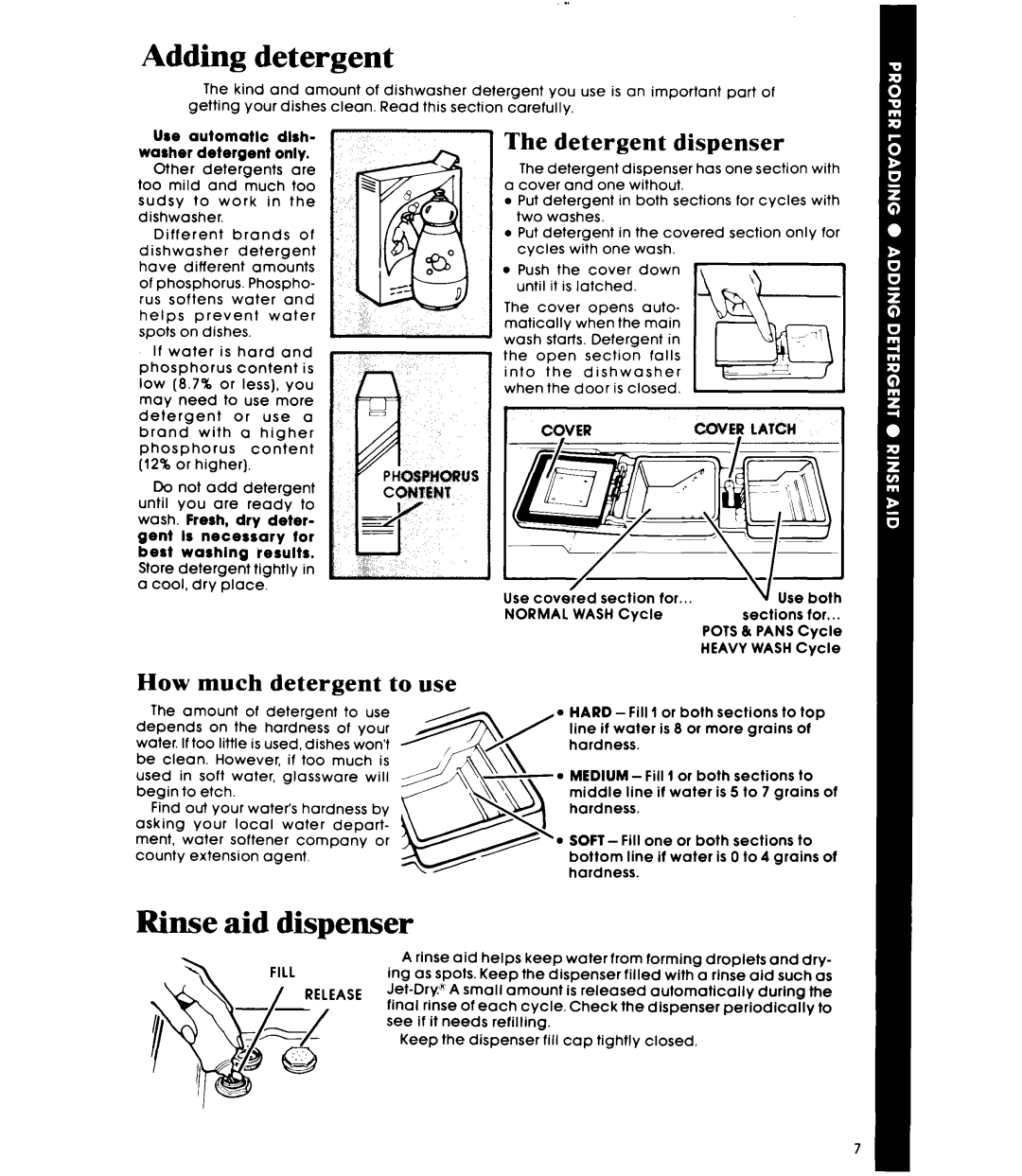
.I
Adding detergent
The kind and amount of dishwasher detergent you use is an important part of getting Your dishes clean. Read this section carefully.
Use automatlc dlsh- washer detergent only.
Other detergents are too mild and much too sudsy to work in the dishwasher.
Different brands of
dishwasher detergent have different amounts of phosphorus. Phospho- rus softens water and
helps prevent water spots on dishes.
If water is hard and
phosphorus content is low (8.7% or less), You may need to use more
detergent or use a brand with a higher
phosphorus content (12% or higher).
Do not add detergent until you are ready to wash. Fresh, dry deter-
gent Is necessary for
best washing results. Store detergent tightly in a cool, dry place.
The detergent dispenser
The detergent dispenser has one section with a cover and one without.
l Put detergent in both sections for cycles with two washes.
l Put detergent in the covered section only for cycles with one wash.
l Push the cover down until it is latched.
The cover opens auto- matically when the main wash starts. Detergent in the open section falls into the dishwasher when the door is closed.
NORMAL WASH Cycle | sections for.. . |
| POTS & PANS Cycle |
| HEAVY WASH Cycle |
How much detergent to use
The amount of detergent to use depends on the hardness of Your Water. If too little is used, dishes won’t be clean. However, if too much is used in soft water, glassware will begin to etch.
Find out your water’s hardness by asking Your local water depart-
ment, water softener company or county extension agent.
l
l MEDIUM - Fill 1 or both sections to
if water is 5 to 7 grains of
l SOFT - Fill one or both sections to bottom line if water is 0 to 4 grains of hardness.
Rinse aid dispenser
A rinse aid helps keep water from forming droplets and dry- ing as spots. Keep the dispenser filled with a rinse aid such as
final rinse of each cycle. Check the dispenser periodically to see if it needs refilling.
Keep the dispenser fill cap tightly closed.
